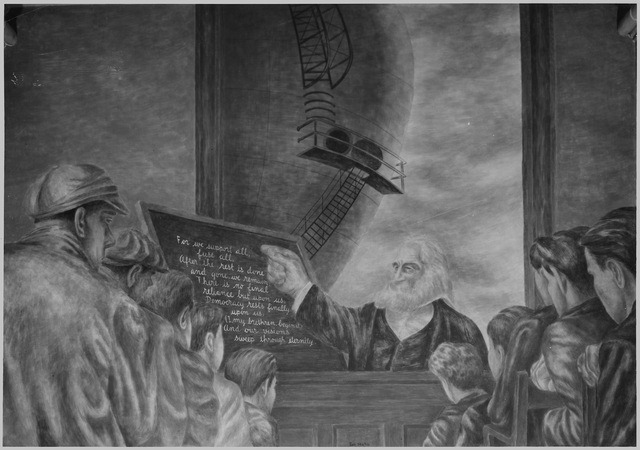
The Politics of Competence
This interview was originally published by City Journal on December 10, 2021. Joshua Mitchell is professor of political theory at Georgetown University and a Washington Fellow at The Claremont Institute’s Center for the American Way of Life. He recently spoke with City Journal associate editor Daniel Kennelly about his 2020 book, American Awakening: Identity Politics and Other Afflictions of Our Times and about his upcoming book, The Gentle Seduction of Tyranny: 20 Reasons the State Grows Stronger.
How does the “awakening” of your book’s title relate to the two past religious Great Awakenings?
America will always be a religious nation. In Democracy in America, Tocqueville wrote, in fact, that America will always have a Puritan character. We have had two Great Awakenings, so called, in America: one in the 1740s, whose emblematic preacher was Jonathan Edwards; and another in the 1820s, when Tocqueville visited America. That was not the end of it, however. Every major tremor that has shaken American life—the Civil War, the Social Gospel movement, Progressivism, Prohibition, the Civil Rights movement—has been thought through and justified in religious terms.
Now, as we know, the Pew Charitable Trust undertook a religious sentiment survey a few years ago, and famously concluded that America consists of a majority of people without any religious affiliation. We are, it seems, a nation of “Nones.” But this tells us nothing, really, about religious sentiment in America. We are living through yet another Great Awakening, but it is not happening in our churches. They have failed us. They have abandoned their charge of helping us work through the problem of original sin, of figuring out how we can move from irredeemable stain to salvation. In America today, identity politics offers a way to do just that. Religious sentiment, in a word, has migrated from the churches to left-wing politics. Through identity politics, we are told who is stained (the “irredeemables” are) and who is pure, and what we must do (renounce “whiteness” and all of its trappings) in order to lift the burden of guilt from our national shoulders. America’s Great Awakenings of the past were concerned with redemption from sin. The current one is as well. This one, however, has no room for God or for forgiveness.
What is the alternative to identity politics in America? Is a return to the status quo ante possible—or desirable?
In the book I suggest two alternatives for America going forward. To state the case in its strongest form, we can either continue to be transfixed by what I call “the politics of innocence and transgression” or we can re-adopt what I call “the liberal politics of competence.” These are two different regimes types. They will produce two different kinds of America. The so-called “transformation of America,” begun during the Obama administration and now proceeding with lightning speed in the Biden administration, is transfixed on turning America into a nation attentive only to innocent victims and to disenfranchising—or cancelling, really—the transgressors. The former are the so-called voiceless ones, who now alone have the right to speak; the latter have been heard from enough and must now be silent. No decent liberal nation can be built on the politics of innocence and transgression. Nor can we build a nation that works on that sort of politics. If we want a nation that is both decent and that works, we must develop a nation of competent citizens, capable of building a world together, in their neighborhoods, local communities, schools, churches, and jobs.
The book’s conclusion hints at some alarming geopolitical consequences for an America that continues its embrace of identity politics. Could you elaborate on those?
World history is the story of the competition between nations and empires. Victory belongs to those whose citizens can, through their competences, rise to the challenge. The politics of competence, in a word, is that necessary condition for survival on the world-historical stage. We can imagine how, in a brief unipolar moment, an ascendant nation is so far ahead of the rest that it goes slack and loses sight of the centrality of competence. America after 1989 was such a nation. No nation competed with us, really, so we went slack. Only under those circumstances could the politics of innocence and transgression take control of the popular imagination. Now, in the third decade of the twenty-first century, we are awakening to the threat that China poses. The competition among nations has resumed. If we do not understand this, if we carry on much longer pretending that we do not need to redirect our thinking to the politics of competence, then America as we have known it will come to an end.
What can you tell us about your next book?
My next book is entitled, The Gentle Seduction of Tyranny: 20 Reasons the State Grows Stronger. I have long been fascinated by Tocqueville’s observation that there is in the democratic soul “a secret hidden longing,” as he calls it, for a powerful state that takes away our liberty in return for the promise that it will care for us, give us security and direction, encourage us to think about nothing but entertainment, and so on. This is a problem that is deeper than politics and predates the importation of German ideas about the administrative state in the late-nineteenth century that gave rise to Progressivism in the twentieth century. In Democracy in America, there are some 20 reasons Tocqueville identifies; together they conspire to end the reign of liberty that was the hallmark of American greatness. Politics surely matters. But if we are unable to identify and ward off the secret hidden longing that seduces America into this gently tyranny of the state, party politics will be of no avail.

 Twitter
Twitter
 Facebook
Facebook